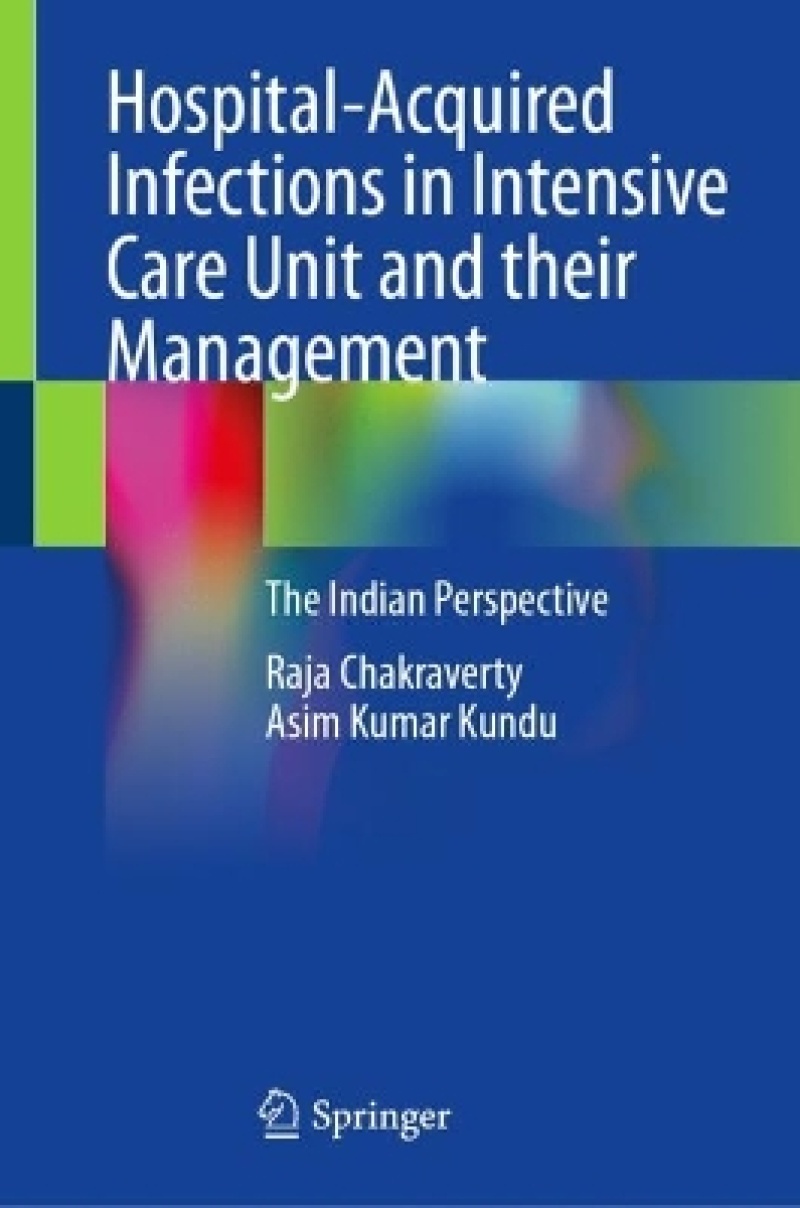This book comprehensively addresses all aspects of hospital-acquired infections (HAIs) in the ICU, emphasizing their control and management. This book emphasizes the immense value of practicing robust infection control measures, which minimize the morbidity and mortality associated with HAIs and prove cost-effective.
Preventing healthcare-associated infections remains an ongoing and challenging task in India's medical care settings. With numerous hospital infection control guidelines available, this book encompasses various topics, catering to healthcare workers at all levels. It provides unique features that set it apart, including comprehensive coverage of basic principles of infection control, the pivotal role of healthcare workers, bio-waste management, and antimicrobial stewardship. It is extensively updated to reflect current clinical understanding and management practices. The book provides the latest guidelines for preventing and managing nosocomial infections in healthcare facilities. It represents the first-ever writing from the Indian context, incorporating ICMR and governmental study/project data and findings. It provides easy-to-follow algorithms for the management of clinical scenarios.
Additionally, this book offers practical guidance on establishing effective infection control units in hospitals, complete with quality control and quality assurance measures. It serves as a valuable resource, drawing from the latest research and evidence-based practices while incorporating the specific needs and context of the Indian healthcare system.
This book aligns with the UN Sustainable Development Goal 3 - Good Health and Well-being and equips readers with the knowledge and tools to combat HAIs effectively. It is an essential reference for clinicians, healthcare professionals, including nurses, ICU technicians, allied caregivers, medical technologists, microbiologists, pharmacists, policymakers and governmental agencies, NABL labs, NABH accredited nursing homes, hospital infection control committees and students, facilitating the implementation of robust infection control practices and ultimately improving patient outcomes in ICU settings.
Introduction to Nosocomial infections.- Prevalence, etiology and Disease Burden.- Current Management algorithms of Hospital Acquired Infections.- Catheter associated Blood stream infections (CLABSI): Prevalence and Management.- Catheter associated Urinary Tract Infections (CAUTI): Prevalence and Management.- Surgical Site Infections (SSI): Prevalence and Management.- Surgical Antimicrobial Prophylaxis (SAP) in India.- Antimicrobial Stewardship practices in Intensive care units in India.- Challenges faced in management of healthcare acquired pneumonia (HAP) and ventilator associated pneumonia (VAP).- Hospital infection control: Work in progress?.- Good Practices and Standard Operating Practices for sterilization across wards.- Future Directions and the Way Ahead.
This book comprehensively addresses all aspects of hospital-acquired infections (HAIs) in the ICU, emphasizing their control and management. This book emphasizes the immense value of practicing robust infection control measures, which minimize the morbidity and mortality associated with HAIs and prove cost-effective.
Preventing healthcare-associated infections remains an ongoing and challenging task in India's medical care settings. With numerous hospital infection control guidelines available, this book encompasses various topics, catering to healthcare workers at all levels. It provides unique features that set it apart, including comprehensive coverage of basic principles of infection control, the pivotal role of healthcare workers, bio-waste management, and antimicrobial stewardship. It is extensively updated to reflect current clinical understanding and management practices. The book provides the latest guidelines for preventing and managing nosocomial infections in healthcare facilities. It represents the first-ever writing from the Indian context, incorporating ICMR and governmental study/project data and findings. It provides easy-to-follow algorithms for the management of clinical scenarios.
Additionally, this book offers practical guidance on establishing effective infection control units in hospitals, complete with quality control and quality assurance measures. It serves as a valuable resource, drawing from the latest research and evidence-based practices while incorporating the specific needs and context of the Indian healthcare system.
This book aligns with the UN Sustainable Development Goal 3 - Good Health and Well-being and equips readers with the knowledge and tools to combat HAIs effectively. It is an essential reference for clinicians, healthcare professionals, including nurses, ICU technicians, allied caregivers, medical technologists, microbiologists, pharmacists, policymakers and governmental agencies, NABL labs, NABH accredited nursing homes, hospital infection control committees and students, facilitating the implementation of robust infection control practices and ultimately improving patient outcomes in ICU settings.
Produktdetaljer
Biografisk notat
Dr. Raja Chakraverty is an ICMR Scientist working at the Institute of Post Graduate Medical Education and Research, Kolkata, India. He has ten years of research and teaching experience. His background in pharmacology enables him to work on diverse medicine-related topics for which he has received several prestigious awards nationally and internationally. Dr Raja has traveled to the United Kingdom, the People’s Republic of China to deliver his lectures. He has many citable articles on antibiotic stewardship and infection control. Dr. Raja has published many research and review articles in peer-reviewed journals, books and book chapters. He is an editorial board member of a few journals. His research interests include clinical pharmacology, recent trends in antidiabetic medications, pharmacokinetics, pharmacodynamics, antimicrobial resistance, antibiotic stewardship, toxicology and toxicokinetic, ayurvedic and herbal medicine screening and pharmacovigilance and infection control.
Prof (Dr.) Asim Kundu is a Senior Professor, Head of Department, and Clinician at West Bengal Medical Education Service with over 22 years of rich teaching experience in several medical colleges in the state. Prof. Kundu has several highly cited articles in anesthesiology and critical care medicine journals internationally. He is an eminent clinician with an MD in anesthesiology, currently the principal investigator of the ICMR-AMSP program at IPGMER-SSKM Hospital, Kolkata. Prof. Kundu is also an assessor for National Medical Council (NMC). He is interested in coordinating research on evidence-based medicine, antibiotic stewardship and different facets of anesthesiology and critical care medicine.
